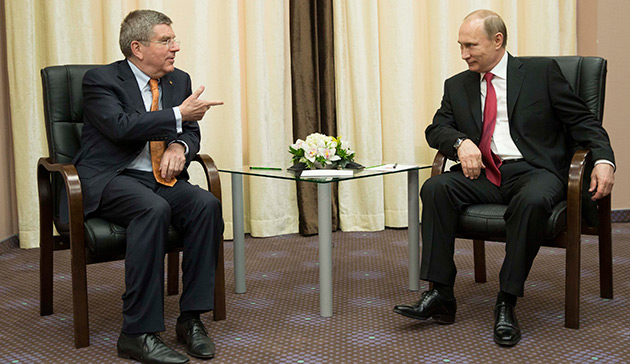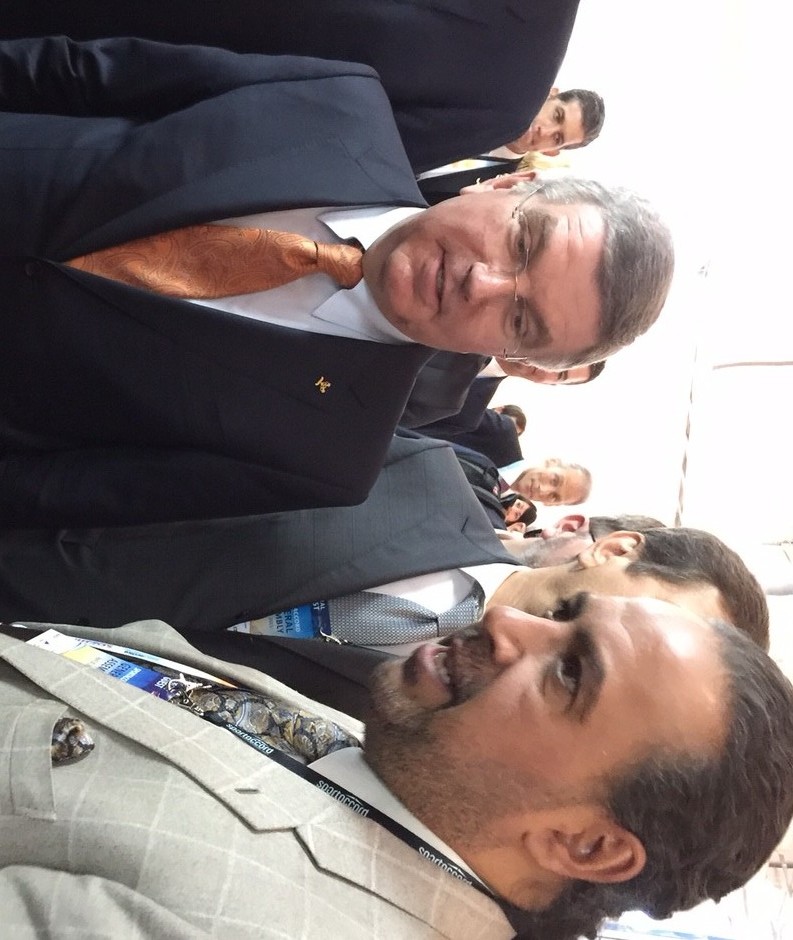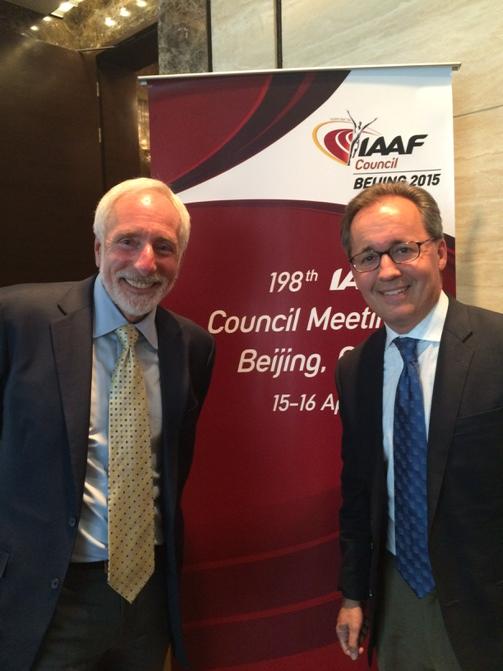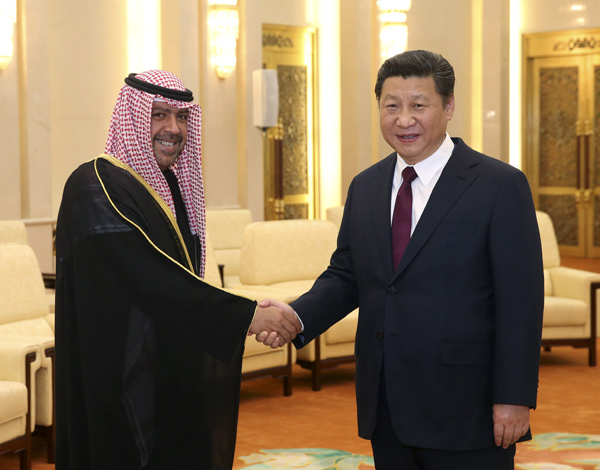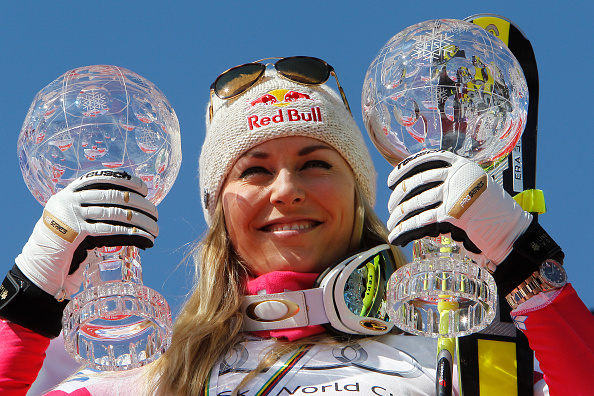SOCHI, Russia — Lost for almost everyone in the provocative speech that SportAccord president Marius Vizer delivered here earlier this week was a Latin phrase at the very end, one that — now that the Assn. of Summer Olympic International Federations predictably rallied on Wednesday around the International Olympic Committee — sums up the contentious state of world sport politics. Fine primo tempo, Vizer said in closing his remarks Monday: “the end of the first season,” or, better, the end of the first chapter. If this were television drama, the second, or even the third, will surely make for even better stuff.
This was Vizer Wednesday morning, before the ASOIF meeting got underway: “I am ready to fight until the end. I have nothing to lose.”
The American television show “Game of Thrones,” which has resumed its on-air run, has nothing on what is going down this week in Sochi — and what promises to be forthcoming. Because Vizer believes in both words and, better, action. So, too, IOC president Thomas Bach.
What we have here are two strong personalities. Both are very, very smart and, as well, exceptionally strong-willed.
Bach’s background, remember, is in fencing.
Vizer is in judo. Moves and counter-moves.
The Putin factor
The first person to call Bach moments after he was elected IOC president in September, 2013, in Buenos Aires? Vladimir Putin. What country is now a strong supporter of SportAccord? Russia. Moreover, who came here at the start of SportAccord and exchanged toasts with Vizer? Putin.
The IOC put out a news release here from Sochi noting that Bach and Putin on Monday held an hour-long meeting celebrating the "legacy" of the 2014 Sochi Games.
For those skeptics who would focus only on the $51 billion figures associated with Sochi 2014, the IOC noted, apparently via Putin:
"This winter the local authorities say that all the hotels in the mountain cluster were fully booked from the beginning of November until mid-January. Traffic-calming measures even had to be put in place to cope with the numbers. Summer bookings for the hotels in the coastal cluster are said to be equally as successful."
The IOC release also said that Putin praised the “excellent relations” with the IOC president as “leader of the Olympic Movement.”
Back to you, Mr. Vizer, and this photo from SportAccord:
And, for good measure, these words from a SportAccord release:
"Congratulating Marius L. Vizer upon his re-election as SportAccord President, Mr. Putin said, 'Russia has worked very well with SportAccord and we are happy that the election has taken place in our sports capital. Sochi has given us the platform to organize big events and exhibitions. I hope that you will have a chance to enjoy all that is on offer.' "
And that's not all:
“Let me emphasize," Putin said, "that the support of SportAccord and IOC means a lot to us. We will continue to work together and promote peace and sport. I am convinced that the sports movement should be united and not divided by contradictions.”
ASOIF meeting
ASOIF represents the 28 sports on the Summer Games program. This is where things stood after Wednesday's meeting, and going forward:
Vizer is also president of the International Judo Federation. In front of all of his Olympic sport colleagues, he offered an apology for the speech Monday in which he, among other things, described the IOC system as “expired, outdated, wrong, unfair and not at all transparent.”
Vizer said Wednesday, “I regret to create inconvenience … regarding to my way and moment to choose this opportunity. But regarding the content, I expressed my voice and that is my opinion. For the rest, I am sorry. But I think everybody in the world of sport is free to express the opinion, to have vision, to have attitude. That is the world of sport.”
The ASOIF assembly on Wednesday, by a show of hands, ratified the statement adopted Tuesday by its council — suspending relations with SportAccord pending further review.
Twenty-seven of the 28 summer sports signed the petition. ASOIF chief Franceso Ricci Bitti, who is president of the International Tennis Federation, said it was super-easy to imagine which was the hold-out. Moves and counter-moves.
Despite the suspension, Ricci Bitti said, the door was still open for reconciliation.
This poses the question:
Really?
IOC system: how the millions go to sports
Putting a different spin than the one offered by Vizer on the IOC: it is for sure a traditional, indeed conservative, system. It works best when the president is firmly in control — a lesson the former president, Jacques Rogge, learned to his dismay after an exercise in “democracy” at the session in Mexico City in 2002.
That 2002 session was a watershed for Rogge — it marked the end of his honeymoon. He had been elected in Moscow the year before.
Perhaps this Sochi SportAccord convention will, in time, come to be seen as the end of Bach’s honeymoon as well.
It was altogether predictable that the summer sports would rally, and fiercely, around Bach and the IOC. They live in — if you will — a closed system, many hugely dependent on the IOC for financial and creative survival.
These distributions largely tell the story:
After the 2008 Beijing Olympics, the summer sports got $296 million to split up; after London 2012, $515 million, thanks to enhanced broadcast revenues; projected revenues to Rio 2016 are $550 million.
Track and field got $29 million in 2008; $45.2 million in 2012; and is projected to get $40 million in 2016. (The IAAF, incidentally, is working, and hard, for that $5 million back.)
It was the IAAF that bolted SportAccord first, with its president, Lamine Diack, on Tuesday declaring, “What was said by Mr. Vizer was unacceptable.”
Swimming got $14.3 million in 2008; $25 million in 2012; and is due to get $32 million in 2016.
FINA president Julio Cesar Maglione on Tuesday, to Associated Press: “The international federations are independent and they make their own job.”
Track and field and swimming (along with gymnastics) are what are called group A federations.
Even smaller federations can hardly say no to the IOC. Basketball is in B; it got $14.3 million in 2008, $25 million in 2012 and stands to get $25 million in 2016. Rowing is in C; it got $9.6 million in 2008, $17.7 million in 2012 and is due for the same, $17.7 million in 2016. Table tennis is in D; it got $8 million in 2008, $15.3 million in 2012 and stands to take in $17.3 million in 2016.
Ricci Bitti could hardly have been more clear in explaining, ostensibly for the benefit of all involved but really for Vizer, there in the audience, how things work.
“We believe the IOC is not a perfect organization but we can try to improve from the inside,” he said, and he hardly needed to add that for those in the bubble it has never been so financially secure.
And, a few moments later, specifically regarding “our relation with the IOC”:
“Our vision, the vision of the majority … is we can change if possible from inside our world in which we work, which we spend, because [we are] a major stakeholder of the IOC. ASOIF is a major stakeholder of the IOC, together with the [national Olympic committees]. We believe the IOC is a cornerstone machine with very important tools in the world of sport.
“It is a waste of time to make a war, in our opinion, from outside or to try to destabilize the system as your position unfortunately as expressed on Monday.”
A matter of perspectives?
Here is the thing about making "a war," though.
One man’s terrorist is, as the saying goes, another man’s freedom fighter.
There were many in the audience — and, indeed, around the world — who know in their hearts that there was more than just a little truth in what Vizer had to say Monday. As with many things, is it a matter less of what he said than when and how he said it?
“He has a lot of sympathy from a lot of people,” said the president of one Summer Games sport, referring to Vizer, asking not to be identified.
“This was not the right occasion,” the president of another Summer Games sport said, also asking to remain anonymous. “On the right occasion, Thomas will listen.”
There are 28 Summer Games sports and seven Winter. There are more than 100 international sports federations in SportAccord. What about the others not on the Olympic program? What about their financial considerations? Late Wednesday, ARISF, a group that represents 35 non-Olympic sports -- everything from baseball/softball to sport climbing to cricket -- issued a statement calling for "continued constructive dialogue between the IOC and SportAccord."
The fact that there was a break in high-level Olympic politics made news — fodder for sports-talk shows and the like — back home in the States. This is noteworthy. An Olympic story making general-news headlines in an off-year? For all the wrong reasons? Now the altogether foreseeable reaction of the federations rallying around Bach is for sure going to feed into the perception, right or wrong, that the federations (read: IOC members for those who make no distinction) are limousine-riding fat cats who care only perpetuating their own secretive, overblown caste.
You don’t think the opponents of the Boston 2024 campaign are going to seize on this sort of thing as evidence of how the IOC protects its own? Don’t be naive.
In his remarks Monday, Vizer said that in more than 100 countries, sport is “in misery,” with athletes “lacking the necessary basic elements — food, medication, equipment, preparation facilities and possibility to participate to competitions.”
This is, undeniably, true, everywhere in our world, from Laos — where this space has seen a would-be marathon runner running on shoes four years old — to the United States, where the struggle can prove ongoing to find a sponsor to fund the Olympic dream.
Financially speaking, the IOC is essentially a pass-through. For every dollar it takes in, roughly 90 cents go back out. Even so, it is nonetheless incredibly difficult to explain to ordinary folks how an organization that took in — according to tax filings — $5.37 billion for the years 2009-12 can not afford to find enough money to pay for a pair of decent running shoes.
Sometimes it takes someone to speak out to effect change.
Whether or not Vizer — and SportAccord — are appropriate vehicles for such change are, of course, matters for legitimate debate.
In the meantime, sometimes the IOC responds to calls for change. In March, it announced proposed tweaks to Rules 50 and 40, which would relax advertising rules during the Games — a victory for U.S. athletes who were campaigning for such reform.
It was in that same announcement that Bach disclosed the IOC executive board, which for a dozen years has held its spring meeting in line with SportAccord, would not be making the trip this year to Sochi.
Vizer said Wednesday he wrote a long letter to Bach last July. He got nowhere.
So now we are somewhere.
Where depends on your point of view.
The literalist would say, Sochi. Two more days of SportAccord 2015. What could possibly come next?!
The therapist would ask, have we made progress? “We have a conflict between all sport family,” ASOIF vice president Hassan Moustafa, the International Handball Federation chief, said Wednesday from the dais. “How we can solve this problem? We have to sit and we have to discuss.”
The script writer would say, and back to Latin of course: primo enim in capite duo — at the start of chapter two.



